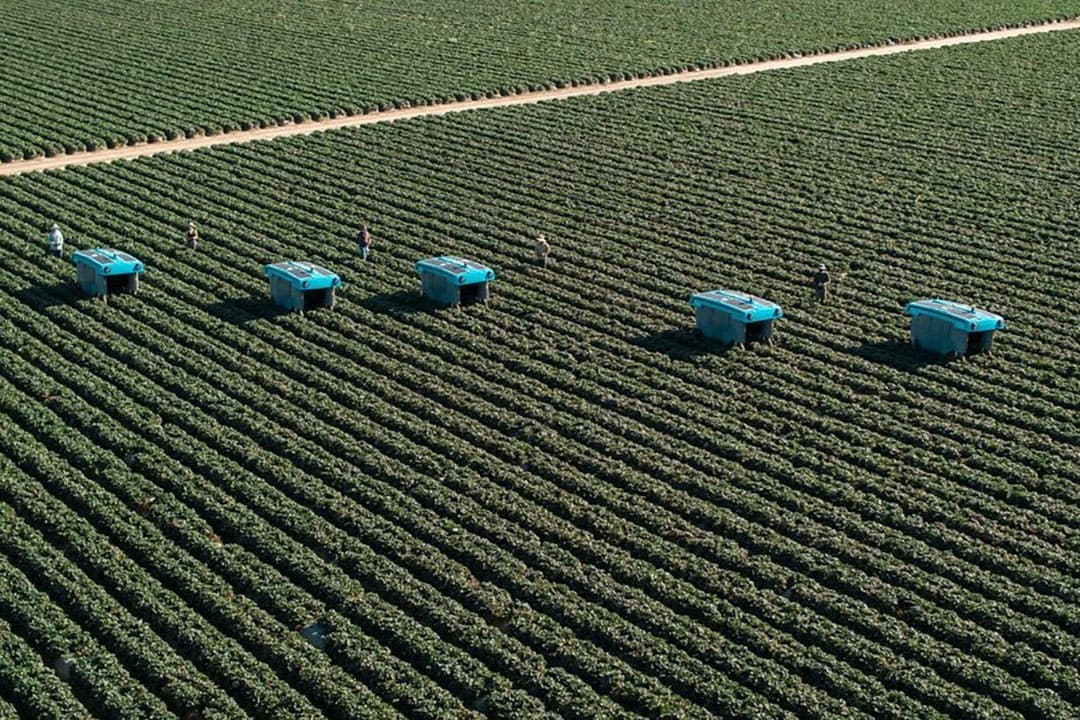Google’s Mineral to provide farmers with plant per plant data sets

After five years within prototyping environment X, Google’s parent company Alphabet has spun-off Mineral. The start-up that is to provide farmers across the world with detailed and rich datasets.
When you think of Google, you no longer think of an internet search engine, but of a tech company. A tech company gathering and analysing data to make your business and private lives easier and more comfortable. And more profitable as well, not only to you, but also to Google and its affiliates.
Data is also the core of one of its latest spin-offs, or graduation as the company involved, Mineral, likes to refer to it.
‘We choose agriculture now because…’
Officially, “Mineral graduated from the rapid prototyping environment of X in January 2023 becoming an independent Alphabet company working to unlock a more sustainable, climate-resilient and productive food system”, says Elliott Grant, CEO of Mineral (and its predecessor).
Grant says the company chooses agriculture now because agriculture is increasingly believed to be a major contributor to climate crises, yet also is a victim of the changing climate. He also believes that foundational technology (such as generative artificial intelligence, machine learning and edge compute power) has matured to the point where it can help Mineral to solve problems at a scale needed for production agriculture and with the accuracy and speed demanded by farmers.
Text continues below image

Plant per plant data
Mineral will focus on developing sensing technology to generate rich data sets about plants, organise agriculture data from disparate sources for machine learning and building powerful software algorithms. And on conducting research that can advance the understanding of plantkind (a derivative of mankind). With this, the company aims to help companies to better understand the natural systems behind our food production.
It initially began with a plant rover/buggy capturing huge quantities of high quality images in crops like soybeans and strawberries. Mapping and inspecting each plant individually. The company’s end goal is to create detailed and rich datasets that can be used by farmers across the world to benefit from previously unknown factors in plant growing. To eventually make agriculture, food production, more resilient to climate change.
Text continues below image

No surprise
Precision agriculture and especially autonomy and robotics have rapidly become more data intensive. Ag machinery giants like Agco, CNH, John Deere and Kubota are setting up business units focussed on it and set specific sales and income targets for it.
Data and its analysis is also getting increasingly important for other ag giants like BASF, Bayer, Bunge, Cargill and Syngenta. Just to name a few. It’s no surprise that Google is also highly interested in agriculture.
Its name has come across various articles such as this one about the success of the Israeli tech industry and this one about Wageningen University’s quest to develop the best robotic grippers. And Verdant Robotics’ aim to ‘index farms the way Google indexes the internet, tracking each plant over space and time’. For the latter, they and many others can, as of now, tap into Mineral’s technology, algorithms and data.
Join 17,000+ subscribers
Subscribe to our newsletter to stay updated about all the need-to-know content in the agricultural sector, two times a week.



